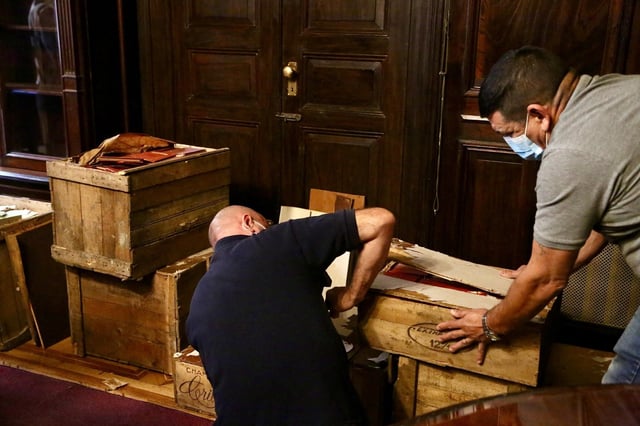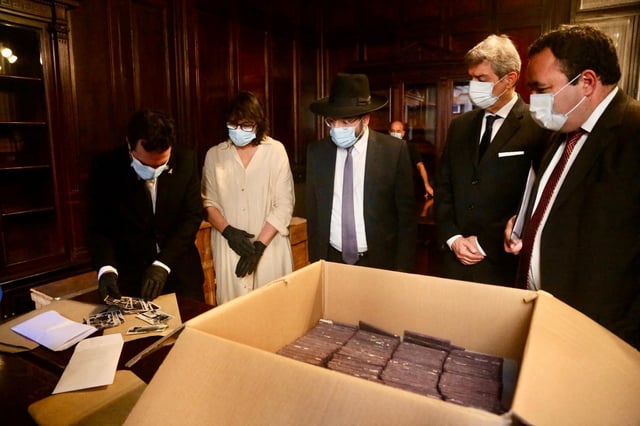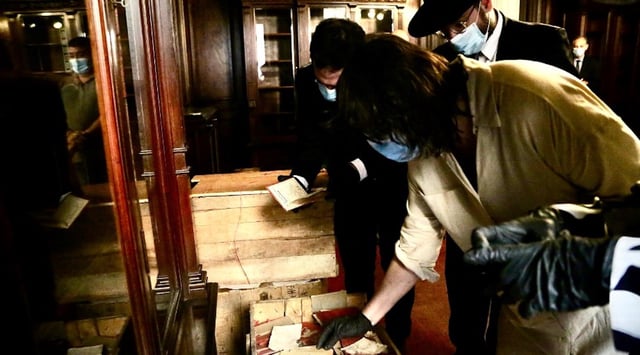Overview
- The Supreme Court of Argentina found 83 boxes of Nazi-era documents, propaganda, and notebooks during preparations for a museum project.
- The boxes were originally sent in 1941 by the German embassy in Tokyo aboard the Japanese steamship 'Nan-a-Maru' and seized by Argentine customs over neutrality concerns.
- Materials include postcards, photographs, and propaganda intended to promote Adolf Hitler's ideology in Argentina during World War II.
- The court has secured the boxes in a high-security location and enlisted the Buenos Aires Holocaust Museum to assist with preservation, inventory, and analysis.
- Experts will examine the contents for insights into Nazi transnational networks, including potential Holocaust financing operations in South America.



